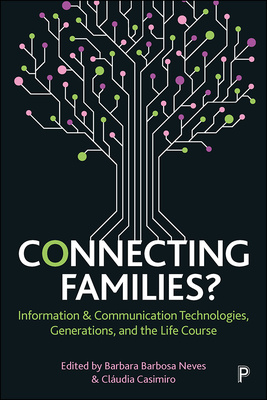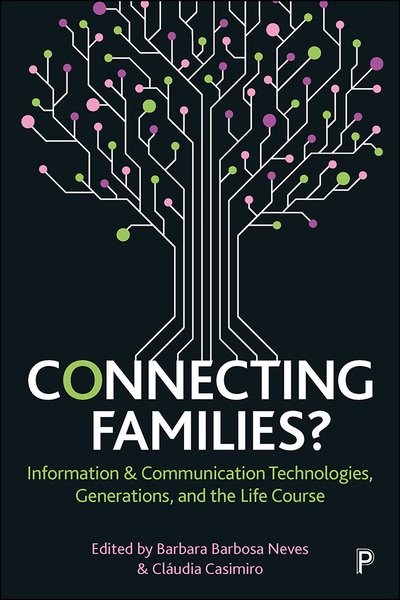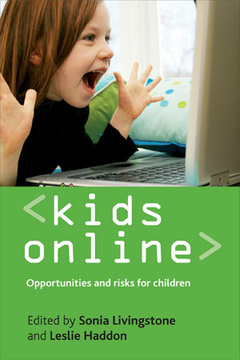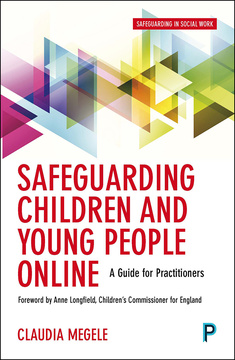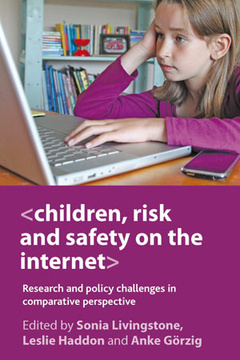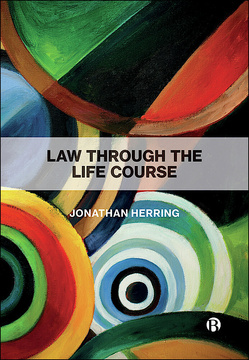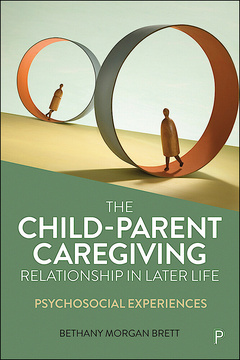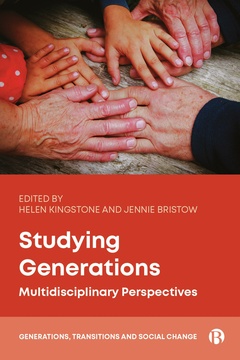Connecting Families?
Information & Communication Technologies, Generations, and the Life Course
Edited by Barbara Barbosa Neves and Cláudia Casimiro
Published
Jun 26, 2018Page count
324 pagesISBN
978-1447339946Dimensions
234 x 156 mmImprint
Policy PressPublished
Jun 26, 2018Page count
324 pagesISBN
978-1447339960Imprint
Policy PressPublished
Jun 26, 2018Page count
324 pagesISBN
978-1447339977Imprint
Policy PressAre Information and Communication Technologies (ICTs) connecting families? And what does this mean in terms of family routines, relationships, norms, work, intimacy and privacy?
This edited collection takes a life course and generational perspective covering theory, including posthumanism and strong structuration theory, and methodology, including digital and cross-disciplinary methods. It presents a series of case studies on topics such as intergenerational connections, work-life balance, transnational families, digital storytelling and mobile parenting.
It will give students, researchers and practitioners a variety of tools to make sense of how ICTs are used, appropriated and domesticated in family life. These tools allow for an informed and critical understanding of ICTs and family dynamics.
“Connecting Families.... offers a vital and timely contribution to the multivalent links of ICTs with families. That its backbone is life course gives an additional bonus of insight and perspective.” Susan A. McDaniel, Canada Research Chair in Global Population & Life Course, President of the ISA Family Research Committee, University of Lethbridge, Canada
“Well-written, thorough and up to date, this is an essential book for both graduate and post-graduate students and all professionals who wish to improve their knowledge on ICT and family relationships today.” Fausto Amaro, University of Lisbon
Barbara Barbosa Neves is Lecturer/Assistant Professor of Sociology at the University of Melbourne and studies digital technologies and social inequalities. She is an elected board member of the Family Research Committee within the International Sociological Association (ISA).
Cláudia Casimiro is Assistant Professor of Sociology at the University of Lisbon, Institute of Social and Political Sciences, and researcher at CIEG, undertaking research on family violence, gender, digital technologies and online dating. She is co-convenor of the Families and Life Course network of the Portuguese Sociological Association (APS).
Foreword: The family has become a network ~ Barry Wellman
Connecting families? An introduction ~ Barbara Barbosa Neves and Cláudia Casimiro
Part I: Theoretical and methodological approaches
Theoretical perspectives on technology and society: implications for understanding the relationship between ICTs and family life ~ Natasha Mauthner and Karolina Kazimierczak
Recursive approaches to technology adoption, families, and the life course: actor-network theory and strong-structuration theory ~ Geoffrey Mead and Barbara Barbosa Neves
Weaving family connections on- and offline: the turn to networked individualism ~ Anabel Quan-Haase, Hua Wang, Barry Wellman, and Renwen Zhang
Oversharing in the time of selfies: an aesthetics of disappearance? ~ Amanda du Preez
The application of digital methods in a life course approach to family studies ~ Alexia Maddox
Cross-disciplinary research methods to study technology use, family, and life course dynamics: lessons from an action research project on social isolation and loneliness in later life ~ Barbara Barbosa Neves, Ron Baecker, Diana Carvalho, and Alexandra Sanders
From object to instrument: technologies as tools for family relations and family research ~ Cláudia Casimiro and Magda Nico
Part II: Empirical approaches
Use of communication technology to maintain intergenerational contact: toward an understanding of ‘digital solidarity’ ~ Siyun Peng, Merril Silverstein, J. Jill Suitor, Megan Gilligan, Woosang Hwang, Sangbo Nam, and Brianna Routh
Careful families and care as ‘kinwork’: an intergenerational study of families and digital media use in Melbourne, Australia ~ Jolynna Sinanan and Larissa Hjorth
Floating narratives: transnational families and digital storytelling ~ Catalina Arango Patiño
Rescue chains and care talk among immigrants and their left-behind parents ~ Sondra Cuban
‘Wherever you go, wherever you are, I am with you … connected with my mobile’: the use of mobile text messages for the maintenance of family and romantic relations ~ Bernadette Kneidinger-Müller
Permeability of work-family borders: effects of information and communication technologies on work-family conflict at the childcare stage in Japan ~ Yuka Sakamoto
Afterword: Digital connections and family practices ~ Elizabeth B. Silva







